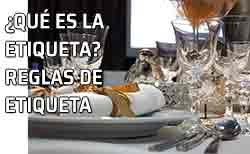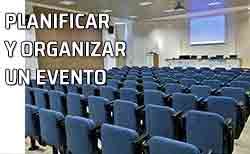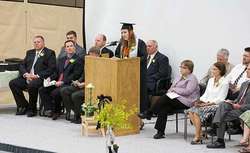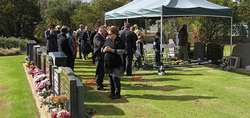
Ceremonial y protocolo del juramento para el cargo de Presidente de los Estados Unidos.
El hasta hace unos días Presidente electo Barack Obama, a partir de hoy Presidente de los Estados Unidos de América, toma posesión de su cargo en uno de los acontecimientos políticos más esperados, no solo del año, sino de las íltimas décadas.

Jura del Presidente de los Estados Unidos.
El día de la inauguración, un día lleno de rituales.
El hasta hace unos días Presidente electo Barack Obama, a partir de hoy Presidente de los Estados Unidos de América, toma posesión de su cargo en uno de los acontecimientos políticos más esperados, no solo del año, sino de las últimas décadas. Con todo el revuelo y entusiasmo que se ha levantado en torno a Barack Obama, se ha olvidado, un poco, que han tenido lugar otras ceremonias de inauguración anteriores. A lo largo de los años, las ceremonias de inauguración y de toma de presidencia se han convertido en eventos muy formales, con rituales y actos de gran importancia. Los actos que componen todo el ceremonial se revisten de una gran formalidad, en un país donde son poco dados a tratamientos, reverencias y costumbres protocolarias.
El primer acto de la mañana, dedicado al culto religioso.
Oficialmente comenzó en 1933 con la asistencia de Franklin Delano Roosevelt a un servicio religioso en la Iglesia Episcopal de St. John's (Washington, visitó una iglesia y permaneció en silencio durante unos momentos, no se sabe si para reflexionar o para rezar, antes de su primera inauguración). Desde entonces, casi todos los presidentes, han decidido participar de esta forma tan peculiar, antes de su toma de posesión del cargo de presidente, asistiendo a un oficio religioso en la mañana del día de la inauguración.
Si bien, la mayoría de los presidentes han ido a iglesias protestantes o cristianas, John F. Kennedy, fue el primer presidente católico de la historia americana, y acudió a los servicios religiosos de la Iglesia de la Santísima Trinidad.
El trayecto hasta el Capitolio.
Cada presidente tiene una forma de hacer su paseo o procesión en la ceremonia de la toma de juramento de su cargo. Pero el procedimiento general, tal y como se ve hoy en día, tiene sus orígenes en el que fue establecido por Zachary Taylor's en su ceremonia de inauguración en 1849. Después de haber sido acompañado a la Casa Blanca por el Comité Mixto del Congreso en la ceremonia inaugural, conocido comúnmente como el JCCIC, el presidente electo, el vice-presidente electo, sus respectivos cónyuges caminan junto a al presidente saliente y el vice-presidente saliente hacia el Capitolio para participar en la ceremonia de la toma de juramento del nuevo presidente del país. La mayor parte de los presidentes han montado en un carruaje o automóvil. Tanto Thomas Jefferson como Andrew Jackson, optaron por caminar en su trayecto a la ceremonia de toma de juramento. En 1869, Andrew Johnson se convirtió en el tercer presidente saliente que no acompañaba a su sucesor en el camino a la toma de posesión; Johnson permaneció en el interior de la Casa Blanca hasta que su mandató expiró, al mediodía, y estuvo firmando proyectos de ley hasta última hora.
Ceremonia de juramento del Vice-Presidente.
La Constitución, de forma específica, requiere que el vice-presidente y otros altos funcionarios juren defender la Constitución, pero a diferencia del juramento presidencial, no se especifica la forma en que debe ser tomado este juramento. También hay que reseñar, que a diferencia del juramento presidencial, una amplia variedad de altos funcionarios públicos pueden y tienen el poder de tomar el juramento a los nuevos vice-presidentes. El juramento, dictado por el Congreso, es el mismo que repiten los senadores, representantes y otros funcionarios públicos, y ha estado vigente desde 1884. Desde 1981, la ceremonia de la toma de posesión se ha celebrado en la terraza del Capitolio.
Ceremonia de toma de posesión del presidente y discurso inaugural.
Artículo II, Sección 1ª de la Constitución de los Estados Unidos, en el cual se incluye el juramento de la oficina del presidente. El presidente suele tomar juramento delante del Presidente de la Corte Suprema, frente al Capitolio, aunque hayan tenido lugar ciertos cambios en algunas tomas de juramento debido a determinadas circunstancias. En el juramento se dice: "Yo juro solemnemente (o afirmo) que desempeñaré legalmente el cargo de Presidente de los Estados Unidos y lo haré con la mayor capacidad (habilidad) posible, haciendo preservar, defender y proteger la Constitución de los Estados Unidos. Y, por supuesto, a esta promesa le sigue el discurso inaugural, que es una de las partes más esperadas por todo el mundo, tanto el público en general, como periodistas y analistas políticos de todo el mundo.
Aunque el primer discurso de George Washington (puede ver el discurso original al pie de este artículo) estuvo falto de lustre, de brillo, han habido otros muchos discursos que han marcado, de forma somera, el tono o sintonía a seguir durante su mandato. William Henry Harrison dio su discurso inaugural - el más largo que se recoge en un acta oficial - bajo un frío intenso y con grandes inclemencias del tiempo, el cual fue ampliamente comentado, pues se especuló con la posibilidad de haber sido una de las causas de su muerte unos meses más tarde.
Partida y despedida del Presidente saliente.
Según el "Manual de Protocolo Social, Oficial y de Ceremonias públicas en Washington", del año 1889, la ceremonia se describe de la siguiente forma: "La partida (salida) de la capital no se reviste de ceremonia alguna, ninguna, salvo la presencia de los miembros de su Gabinete, unos pocos funcionarios y algunos amigos personales del Presidente saliente. El Presidente saliente deja la capital tan pronto como el nuevo presidente, hasta entonces electo, toma posesión de su cargo tras el juramento". No obstante, no siempre se puede hacer con la celeridad que se espera, pues desde las primeras tomas de presidencia, la inauguración en 1.798 de John Adams, con la asistencia de Washington, el público suele tributar un gran homenaje de aplausos, vítores y saludos al Presidente saliente. En los últimos años, se ha instaurado la costumbre de acompañar al Presidente saliente por el nuevo presidente (ambos acompañados de sus cónyuges), hasta las escaleras del Capitolio para ver tomar el helicóptero que les llevará al aeropuerto u otro destino, y así ver partir al Presidente saliente.
Almuerzo inaugural.
La tradición de celebrar un almuerzo inaugural se inició en 1897, cuando la Comisión de Acuerdos del Senado, dió un almuerzo en honor del Presidente William McKinley. Otros presidentes fueron homenajeados de forma similar, en 1945, Roosevelt celebró un almuerzo que acogió a más de 2.000 invitados en la Casa Blanca. La tradición, en su actual forma, no comenzó de forma oficial hasta 1953, cuando el Presidente Dwight Eisenhower y otros 50 invitados del Comité Mixto del Congreso, conocido como el JCCIC, tomaron crema de pollo, jamón asado y hojaldre de patatas, en el antiguo Salón del Senado. El almuerzo del JCCIC de forma habitual incluye discursos, regalos del JCCIC y brindis por la nueva Administración.
El desfile inaugural o de inauguración.
Volviendo al ceremonial de la toma presidencial, quedaba pendiente el desfile o parada del día de la inauguración. Después de que el almuerzo del JCCIC ha concluido, el Presidente y Vice-Presidente de los Estados Unidos comienzan su viaje hacia la Casa Blanca por la conocida Avenida Pennsylvania de Washington, en medio de un bullicio y de miles de serpentinas, confeti y un ambiente general de fiesta y celebración popular. Si bien, en un principio, los desfiles fueron muy informales, James Madison fue acompañado por la caballeria, en su desfile inaugural, en 1809, fijando un patrón para el futuro. En la segunda inauguración de Abraham Lincoln, en 1865, 148 años antes de la toma de juramento de Barack Obama, fue la primera vez que a los negros se les permitió tomar parte en el desfile inaugural.
Baile inaugural.
El baile inaugural comenzó de una forma informal, con la celebración de varios bailes en distintos lugares de Washington, tras la toma de posesión del primer presidente. El creciente ritmo de crecimiento de estos bailes hizo que se hiciera necesario la construcción de nuevos salones de baile en la Plaza de la Judicatura. De forma eventual, se adoptó la idea de celebrar un único baile que pudiera albergar a los miles de personas que deseaban celebrar la toma de juramento del nuevo presidente. Este evento del baile, fue cancelado por primera vez en el año 1853, cuando Franklin Pierce lloraba la reciente pérdida de un hijo suyo que murió (se dejó de celebrar en señal de luto por esta pérdida). Sesenta años más tarde, Woodrow Wilson cancela la celebración del baile oficial y de la mayor parte de las fiesta privadas debido a que Warren G. Harding pregunto sobre un determinado asunto, sin tener en cuenta la ceremonia y ritual que la ocasión y el momento de la inauguración se merecía. En 1949, Harry Truman revivió de nuevo la práctica de celebrar un baile y, a título de anécdota, el baile inaugural de la celebración de la toma de posesión de Eisenhower, en 1953, requirió de la celebración de un segundo baile debido a la gran demanda de entradas que tuvo en su primera edición y que no pudo satisfacer a todo el mundo. El número máximo de bailes, catorce, se alcanzó durante la segunda toma de posesión de Bill Clinton en 1997.
Discurso Inaugural de George Washington.
George Washington.
First Inaugural Address , In the City of New York.
Thursday, April 30, 1789.
The Nation's first chief executive took his oath of office in April in New York City on the balcony of the Senate Chamber at Federal Hall on Wall Street. General Washington had been unanimously elected President by the first electoral college, and John Adams was elected Vice President because he received the second greatest number of votes. Under the rules, each elector cast two votes. The Chancellor of New York and fellow Freemason, Robert R. Livingston administered the oath of office. The Bible on which the oath was sworn belonged to New York's St. John's Masonic Lodge. The new President gave his inaugural address before a joint session of the two Houses of Congress assembled inside the Senate Chamber.
Fellow-Citizens of the Senate and of the House of Representatives:
AMONG the vicissitudes incident to life no event could have filled me with greater anxieties than that of which the notification was transmitted by your order, and received on the 14th day of the present month. On the one hand, I was summoned by my country, whose voice I can never hear but with veneration and love, from a retreat which I had chosen with the fondest predilection, and, in my flattering hopes, with an immutable decision, as the asylum of my declining years-a retreat which was rendered every day more necessary as well as more dear to me by the addition of habit to inclination, and of frequent interruptions in my health to the gradual waste committed on it by time. On the other hand, the magnitude and difficulty of the trust to which the voice of my country called me, being sufficient to awaken in the wisest and most experienced of her citizens a distrustful scrutiny into his qualifications, could not but overwhelm with despondence one who (inheriting inferior endowments from nature and unpracticed in the duties of civil administration) ought to be peculiarly conscious of his own deficiencies. In this conflict of emotions all I dare aver is that it has been my faithful study to collect my duty from a just appreciation of every circumstance by which it might be affected. All I dare hope is that if, in executing this task, I have been too much swayed by a grateful remembrance of former instances, or by an affectionate sensibility to this transcendent proof of the confidence of my fellow-citizens, and have thence too little consulted my incapacity as well as disinclination for the weighty and untried cares before me, my error will be palliated by the motives which mislead me, and its consequences be judged by my country with some share of the partiality in which they originated.
Such being the impressions under which I have, in obedience to the public summons, repaired to the present station, it would be peculiarly improper to omit in this first official act my fervent supplications to that Almighty Being who rules over the universe, who presides in the councils of nations, and whose providential aids can supply every human defect, that His benediction may consecrate to the liberties and happiness of the people of the United States a Government instituted by themselves for these essential purposes, and may enable every instrument employed in its administration to execute with success the functions allotted to his charge. In tendering this homage to the Great Author of every public and private good, I assure myself that it expresses your sentiments not less than my own, nor those of my fellow-citizens at large less than either. No people can be bound to acknowledge and adore the Invisible Hand which conducts the affairs of men more than those of the United States.
Every step by which they have advanced to the character of an independent nation seems to have been distinguished by some token of providential agency; and in the important revolution just accomplished in the system of their united government the tranquil deliberations and voluntary consent of so many distinct communities from which the event has resulted can not be compared with the means by which most governments have been established without some return of pious gratitude, along with an humble anticipation of the future blessings which the past seem to presage. These reflections, arising out of the present crisis, have forced themselves too strongly on my mind to be suppressed. You will join with me, I trust, in thinking that there are none under the influence of which the proceedings of a new and free government can more auspiciously commence.
By the article establishing the executive department it is made the duty of the President "to recommend to your consideration such measures as he shall judge necessary and expedient." The circumstances under which I now meet you will acquit me from entering into that subject further than to refer to the great constitutional charter under which you are assembled, and which, in defining your powers, designates the objects to which your attention is to be given. It will be more consistent with those circumstances, and far more congenial with the feelings which actuate me, to substitute, in place of a recommendation of particular measures, the tribute that is due to the talents, the rectitude, and the patriotism which adorn the characters selected to devise and adopt them. In these honorable qualifications I behold the surest pledges that as on one side no local prejudices or attachments, no separate views nor party animosities, will misdirect the comprehensive and equal eye which ought to watch over this great assemblage of communities and interests, so, on another, that the foundation of our national policy will be laid in the pure and immutable principles of private morality, and the preeminence of free government be exemplified by all the attributes which can win the affections of its citizens and command the respect of the world. I dwell on this prospect with every satisfaction which an ardent love for my country can inspire, since there is no truth more thoroughly established than that there exists in the economy and course of nature an indissoluble union between virtue and happiness; between duty and advantage; between the genuine maxims of an honest and magnanimous policy and the solid rewards of public prosperity and felicity; since we ought to be no less persuaded that the propitious smiles of Heaven can never be expected on a nation that disregards the eternal rules of order and right which Heaven itself has ordained; and since the preservation of the sacred fire of liberty and the destiny of the republican model of government are justly considered, perhaps, as deeply, as finally, staked on the experiment entrusted to the hands of the American people.
Besides the ordinary objects submitted to your care, it will remain with your judgment to decide how far an exercise of the occasional power delegated by the fifth article of the Constitution is rendered expedient at the present juncture by the nature of objections which have been urged against the system, or by the degree of inquietude which has given birth to them. Instead of undertaking particular recommendations on this subject, in which I could be guided by no lights derived from official opportunities, I shall again give way to my entire confidence in your discernment and pursuit of the public good; for I assure myself that whilst you carefully avoid every alteration which might endanger the benefits of an united and effective government, or which ought to await the future lessons of experience, a reverence for the characteristic rights of freemen and a regard for the public harmony will sufficiently influence your deliberations on the question how far the former can be impregnably fortified or the latter be safely and advantageously promoted.
To the foregoing observations I have one to add, which will be most properly addressed to the House of Representatives. It concerns myself, and will therefore be as brief as possible. When I was first honored with a call into the service of my country, then on the eve of an arduous struggle for its liberties, the light in which I contemplated my duty required that I should renounce every pecuniary compensation. From this resolution I have in no instance departed; and being still under the impressions which produced it, I must decline as inapplicable to myself any share in the personal emoluments which may be indispensably included in a permanent provision for the executive department, and must accordingly pray that the pecuniary estimates for the station in which I am placed may during my continuance in it be limited to such actual expenditures as the public good may be thought to require.
Having thus imparted to you my sentiments as they have been awakened by the occasion which brings us together, I shall take my present leave; but not without resorting once more to the benign Parent of the Human Race in humble supplication that, since He has been pleased to favor the American people with opportunities for deliberating in perfect tranquillity, and dispositions for deciding with unparalleled unanimity on a form of government for the security of their union and the advancement of their happiness, so His divine blessing may be equally conspicuous in the enlarged views, the temperate consultations, and the wise measures on which the success of this Government must depend.
Su opinión es importante.
Participe y aporte su visión sobre este artículo, o ayude a otros usuarios con su conocimiento.
-
Las visitas de autoridades de todo tipo son habituales en el ámbito del protocolo. Pero suelen darse algunas dudas en ciertas cuestiones como son los viajes en avión
-
Definición y explicación de quien es el Organizador Profesional de Congresos. Su labor profesional al frente de la preparación y desarrollo de un congreso. La figura del OPC
-
Más allá de los acuerdos firmados por el G-20, la reunión de mandatarios en Londres para resolver la crisis ha dado lugar a innumerables quebrantos del protocolo en Buckingham Palace y alrededores.
-
El ceremonial no es algo rígido sino dinámico; se adapta a los cambios que experimenta la sociedad.
-
La etiqueta, sencillamente, abarca un conjunto de normas para hacer las cosas en forma correcta y de manera más fácil
-
Enumeración de los puntos básicos para preparar un evento. Una visión resumida sobre los aspectos más importantes a tener en cuenta
-
Esquema del ceremonial de presentación de las Cartas Credenciales en Chile.
-
Los responsables de la organización deben crear un esquema claro y completo de todo el desarrollo de la ceremonia
-
Acto de inauguración del monumento gesta de las Malvinas. Protocolo Internacional del Gobierno Argentino.
-
Loas actos de duelo, funerales y entierros son ceremonias que deben guardar y respetar las costumbres y normas que cada institución tenga.
-
Por quinta vez en menos de un año, Cristina Fernández de Kirchner volvió a dejar a un lado un protocolo oficial.
-
¿Cuál es la función de la Reina? ¿Y la de la esposa del presidente de la República Francesa?





